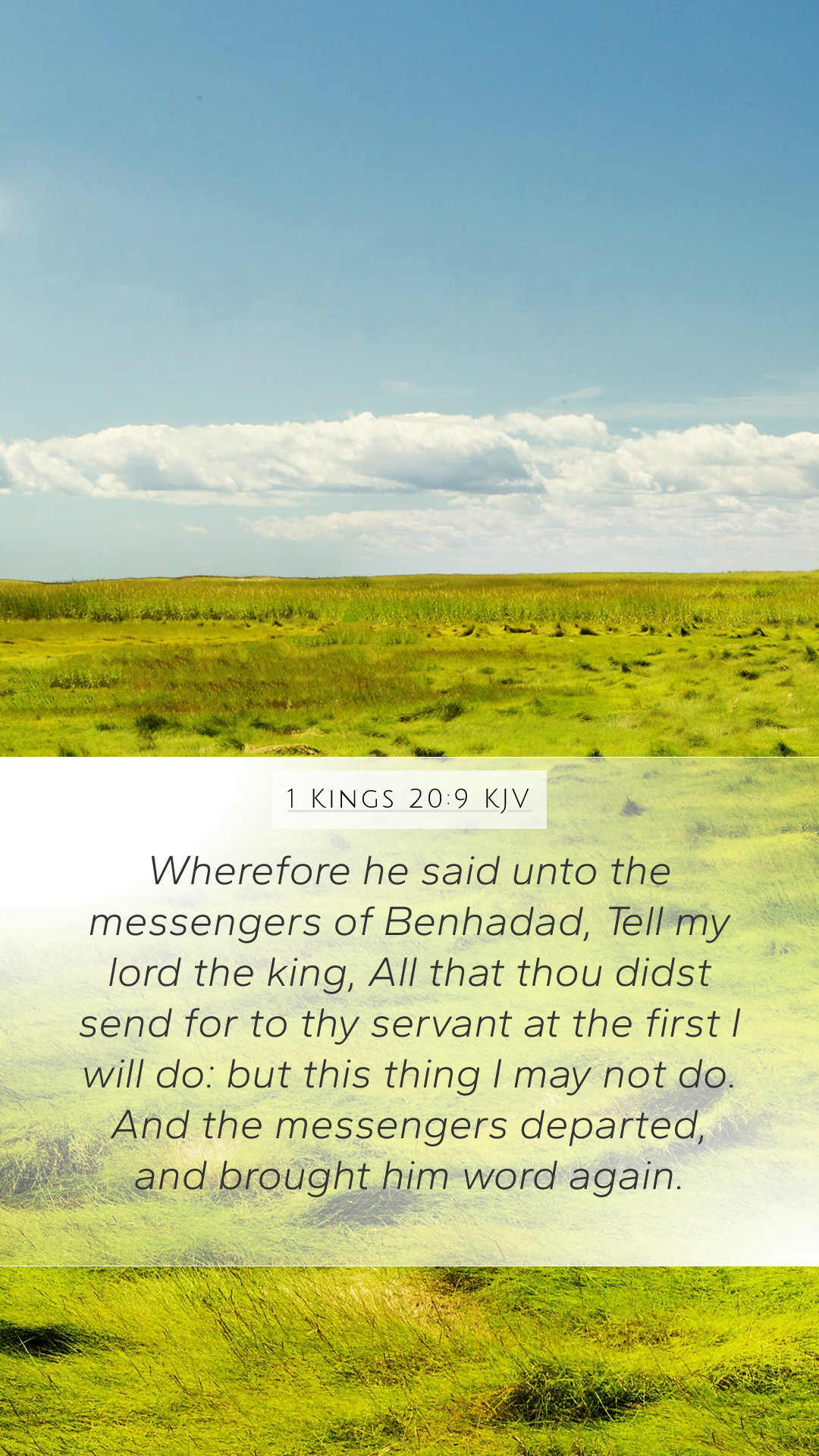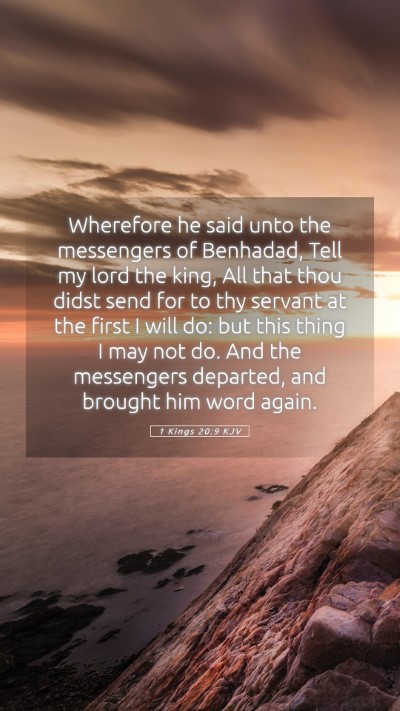Understanding 1 Kings 20:9
The verse 1 Kings 20:9 states:
"So he said to the messengers of Ben-Hadad, ‘Tell my lord the king, “All that you sent for to your servant the first time I will do; but this thing I cannot do.” And the messengers departed and brought back word to him."
Contextual Background
This verse is part of a narrative where Ben-Hadad, the king of Aram, seeks to intimidate Ahab, the king of Israel, into submission. Ahab had previously made concessions to Ben-Hadad, but now he faces a critical moment that tests his resolve.
Verse Meaning and Commentary
The interplay of power between Ahab and Ben-Hadad raises questions about authority, leadership, and trust in God. The commentaries provide several insights:
-
Matthew Henry:
Henry emphasizes Ahab's cautious approach in addressing Ben-Hadad's demands. Ahab's response indicates a boundary to his willingness to cooperate, suggesting a shift in power dynamics. By refusing to capitulate to all of Ben-Hadad's demands, Ahab demonstrates a newfound strength, though it remains borderline stubbornness that could lead to dire consequences.
-
Albert Barnes:
Barnes highlights the significance of Ahab’s reply which illustrates a critical moment where Ahab recognizes the limits of his engagement with Ben-Hadad. This refusal illustrates the tension of foreign relations and the need for discernment and wisdom in leadership.
-
Adam Clarke:
Clarke provides historical context regarding Ben-Hadad’s continued aggression. The refusal signifies not just a diplomatic stance, but also a deeper reliance on God’s providence amidst threats. This moment serves as a precursor to greater events where divine intervention is necessary.
Spiritual Insights
Listeners and readers today can glean wisdom from Ahab’s diplomatic but principled stand. The refusal to yield to unreasonable demands resonates with personal integrity in the face of pressure.
Application of the Verse
-
Decision Making:
When faced with decisions that challenge personal beliefs or integrity, this verse encourages individuals to establish clear boundaries.
-
Trust in God:
It exemplifies that acknowledging limits can be a way to rely on God, reinforcing the importance of faith in difficult circumstances.
-
Leadership Lessons:
This narrative serves as a lesson for leaders to navigate complex power situations with wisdom and humility.
Related Bible Verses
Exploring the interconnections between scripture enhances understanding. Related passages include:
- 1 Kings 20:1-3: Setting the stage for the conflict.
- Proverbs 20:18: The importance of plans and counsel in decision making.
- Isaiah 31:1: A reminder not to rely solely on human strength or alliances.
Conclusion
This verse and its commentaries illustrate profound themes of authority, integrity, and reliance on God. The insights from public domain sources provide readers with tools for deeper Bible study insights and help in understanding the broader historical context of Bible verses.
Ultimately, >1 Kings 20:9< demonstrates that even in a position of vulnerability, there is strength in standing firm in one's convictions. This is an essential Bible verse explanation that can enhance one's ability to interpret and apply biblical teachings in daily life.


